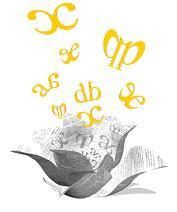I do like my Kindle. I like to read on my Kindle: e-books, PDF documents that I would not read on my computer, oldies but goodies SF books (H.G. Wells, Poe, Jules Verne,…). Also: when I am reading on my Kindle, I am not connected to the Internet – in that sense, it is like reading a book, I am in a quiet universe, without zapping, etc.
But. There is a ‘but’.
Why should the reading quality be worse than in the paperbook? Are we condemned to junk reading? Let me give you some examples (taken in L'Âge de la multitude, N. Colin & H. Verdier, Armand Colin 2012) .
First point. I do not know when a quote starts: there are no distinct characters, nor italics, just a very small margin which is hardly visible.

All the text in the red square is a quote. The blue line indicates the very small margin (2 mm) between the quote alignment and the normal text alignment. You cannot distinguish these two alignments. The only possibilities I have to understand that it is a quote are 1/ the context (but I would prefer to see a real quote, for easy reading), 2/ the footnote reference number at the end of the 'quote'. If some authors do not document their quotes, there will be no footnote number...
By the way, my second point is about the footnote references (anchors in the text). As you can see on the figure above (number 37), or the one below (red circles), the reference is in the core text, and not above as it is usual in a document.

Third point. As it is written here{{fr}}, « Veuillez noter que tous les livres Kindle ne possèdent pas la numérotation des pages (Please note that all the Kindle books do not have page numbers).» How can we quote part of the text in an article? I recently had to mention a quote of this book, and instead of a page number, had to indicate: “Emplacement Kindle 1260 sur 5130”!
The first two points are really a discomfort and represent a minor quality of reading – I would say a poor quality of reading.
I mentioned them to Amazon people at their booth during the Salon du Livre Paris 2014: they listened carefully, but told me that they were binded by standards. I am doubtful about this explanation.
I would be happy if some readers of my blog are able to share similar experience, or give me some URLs where this kind of problems are mentioned (also please they can correct my English, as it is my first post in English).
PS : this post does not regard the quality of the concerned book, which is an interesting and original book.



